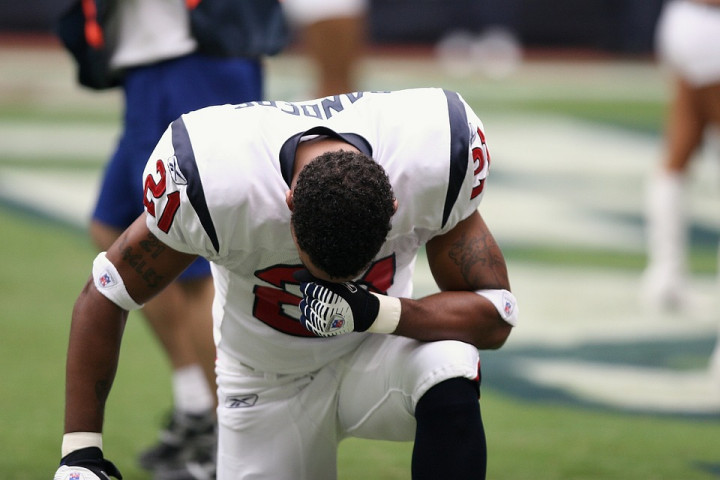News/Commentary
- The 4 Main Contenders for 2024-25 NFL Offensive Rookie of the Year
- CollegeFootballPoll.com's Congrove Presents His 2025 Hall Of Fame Selections
- UFL Regular Season Ends; Playoff Semifinals This Weekend
- How To Mitigate Bias When Betting on NFL Teams
- 1xBet Sportsbook Rewards: How to Make the Most of Your Promotions
- The History of College Football Games Abroad
- Top 5 MLS Players That Could Form the USA Team For 2026 World Cup
How To Mitigate Bias When Betting on NFL Teams
June 3, 2024 by Staff
Betting on NFL games can be both exciting and profitable, but bias can often cloud judgment, leading to poor decisions and lost bets. Recognizing and mitigating bias is essential for any serious bettor. In this article, we’ll explore effective strategies to reduce bias and make more informed bets.

Understand Your Biases
Every bettor brings personal biases to the table. These can stem from favoritism towards a particular team, recent performances, or popular opinion. The first step in mitigating bias is to acknowledge its existence. Self-awareness allows bettors to critically evaluate their motivations and decisions, reducing the influence of personal preferences.
Rely on Data and Statistics
One of the best ways to combat bias is to rely on objective data and statistics. Use comprehensive data sets that include team performance metrics, player statistics, and historical trends. Analytical tools can provide insights that are free from emotional influence. For example, instead of betting on a favorite team, examine their recent performance against the spread, injury reports, and other relevant data of all NFL teams.
Diversify Your Information Sources
Relying on a single source of information can reinforce existing biases. To get a balanced view, diversify your information sources. Follow multiple sports analysts, read various publications, and consult different betting platforms. This approach ensures exposure to a range of opinions and analyses, helping to form a more balanced perspective.
Avoid Overconfidence in Popular Opinion
Public opinion often sways NFL betting lines; however, it doesn’t always reflect the most accurate predictions. Bettors can fall into the trap of overvaluing popular sentiment, leading to biased decisions. While it’s useful to be aware of general consensus, always cross-check with independent research and data. Betting against the public, when justified by data, can sometimes yield better results.
Implement a Betting Strategy
Having a clear betting strategy can help maintain objectivity. Whether it’s a specific betting system or a set of rules, a strategy provides structure and discipline. For instance, some bettors use the Kelly Criterion to determine bet sizes, minimizing risk and maximizing potential returns. By adhering to a pre-determined plan, you can reduce the influence of bias on your decisions.
Review and Reflect on Your Bets
Regularly reviewing and reflecting on past bets is crucial for identifying and mitigating bias. Keep a detailed record of your wagers, including the rationale behind each decision. Analyzing wins and losses helps to spot patterns of biased thinking. Adjust your approach based on these reflections to improve future betting outcomes.
Manage Emotional Influence
Emotional attachment can significantly impact betting decisions. Whether it’s loyalty to a team or frustration from a losing streak, emotions can cloud judgment. Practice emotional management techniques such as mindfulness or taking breaks when feeling overly invested. A calm and rational mindset leads to better decision-making.
Utilize Betting Tools and Software
Advanced betting tools and software can assist in making unbiased decisions. These tools analyze vast amounts of data, providing insights that might be overlooked. Use predictive models, simulations, and betting algorithms to guide your bets. Technology can offer a neutral perspective, reducing the impact of personal bias.
Conclusion
Mitigating bias when betting on NFL teams is crucial for making informed and profitable decisions. By understanding personal biases, relying on data, diversifying information sources, and implementing a clear strategy, bettors can enhance their objectivity. Regular reflection, emotional management, and the use of advanced tools further support unbiased betting. Adopting these practices leads to a more disciplined and successful betting experience.